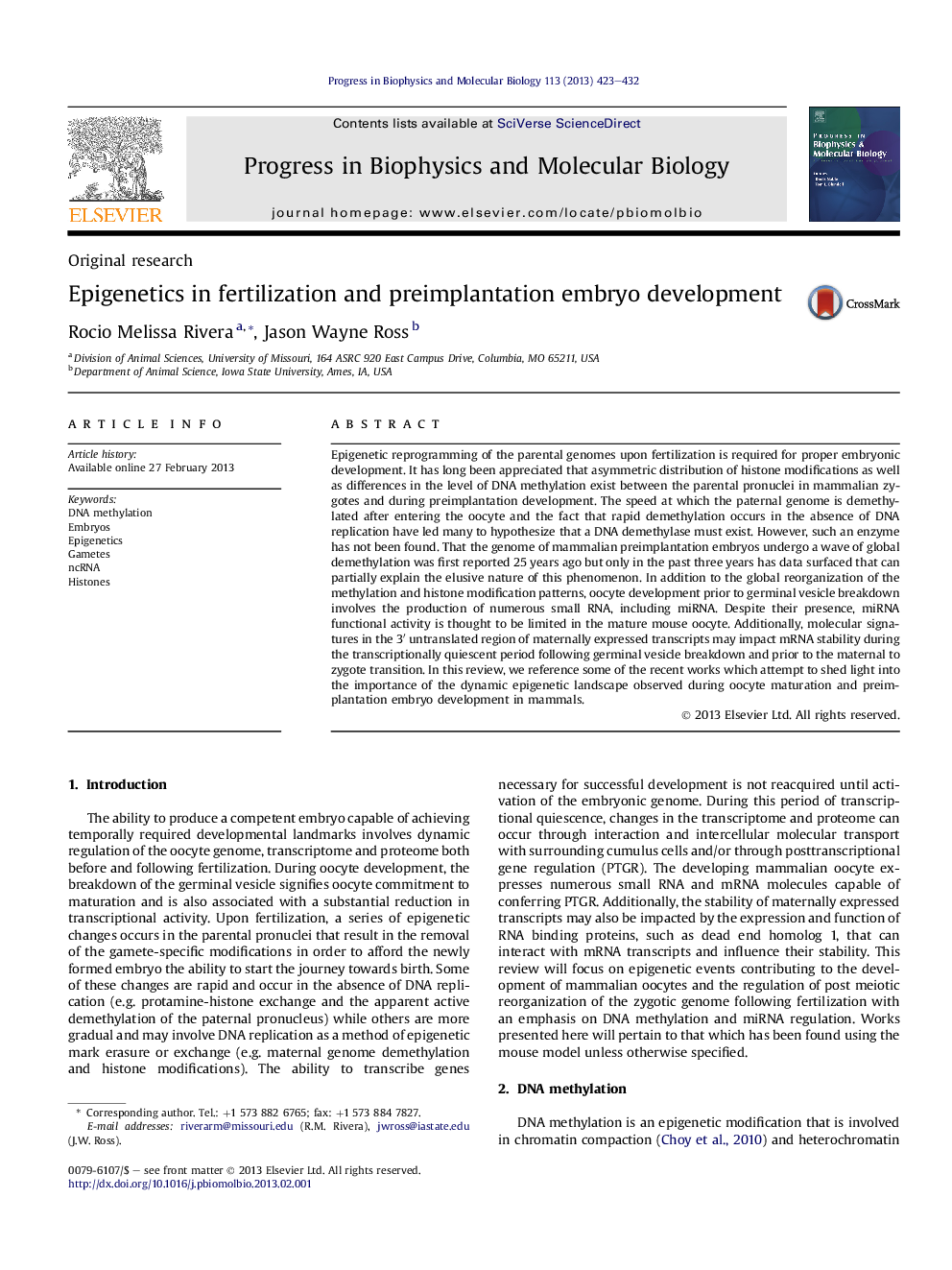| Article ID | Journal | Published Year | Pages | File Type |
|---|---|---|---|---|
| 2070025 | Progress in Biophysics and Molecular Biology | 2013 | 10 Pages |
Epigenetic reprogramming of the parental genomes upon fertilization is required for proper embryonic development. It has long been appreciated that asymmetric distribution of histone modifications as well as differences in the level of DNA methylation exist between the parental pronuclei in mammalian zygotes and during preimplantation development. The speed at which the paternal genome is demethylated after entering the oocyte and the fact that rapid demethylation occurs in the absence of DNA replication have led many to hypothesize that a DNA demethylase must exist. However, such an enzyme has not been found. That the genome of mammalian preimplantation embryos undergo a wave of global demethylation was first reported 25 years ago but only in the past three years has data surfaced that can partially explain the elusive nature of this phenomenon. In addition to the global reorganization of the methylation and histone modification patterns, oocyte development prior to germinal vesicle breakdown involves the production of numerous small RNA, including miRNA. Despite their presence, miRNA functional activity is thought to be limited in the mature mouse oocyte. Additionally, molecular signatures in the 3′ untranslated region of maternally expressed transcripts may impact mRNA stability during the transcriptionally quiescent period following germinal vesicle breakdown and prior to the maternal to zygote transition. In this review, we reference some of the recent works which attempt to shed light into the importance of the dynamic epigenetic landscape observed during oocyte maturation and preimplantation embryo development in mammals.
